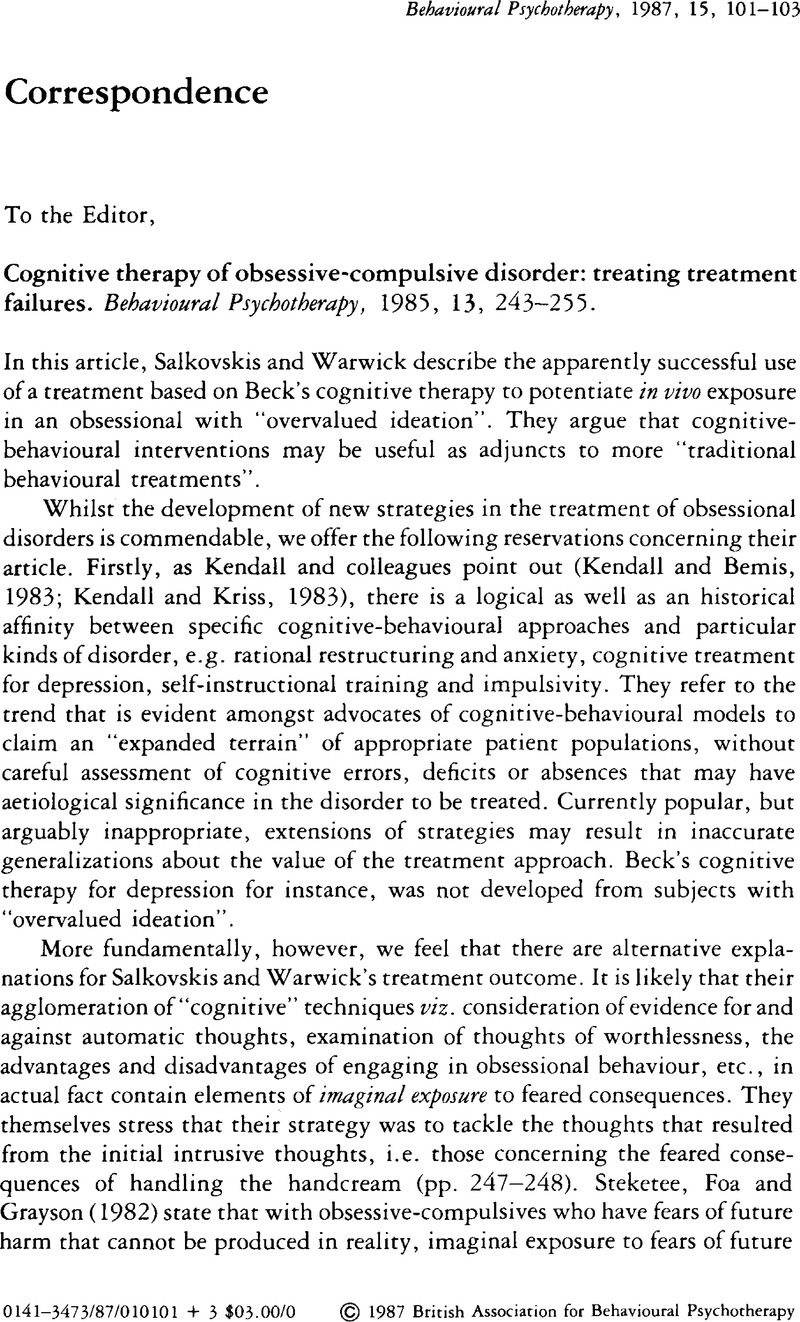Crossref Citations
This article has been cited by the following publications. This list is generated based on data provided by Crossref.
Steketee, Gail
and
Lam, Judy
1993.
Handbook of Effective Psychotherapy.
p.
253.






Comments
No Comments have been published for this article.